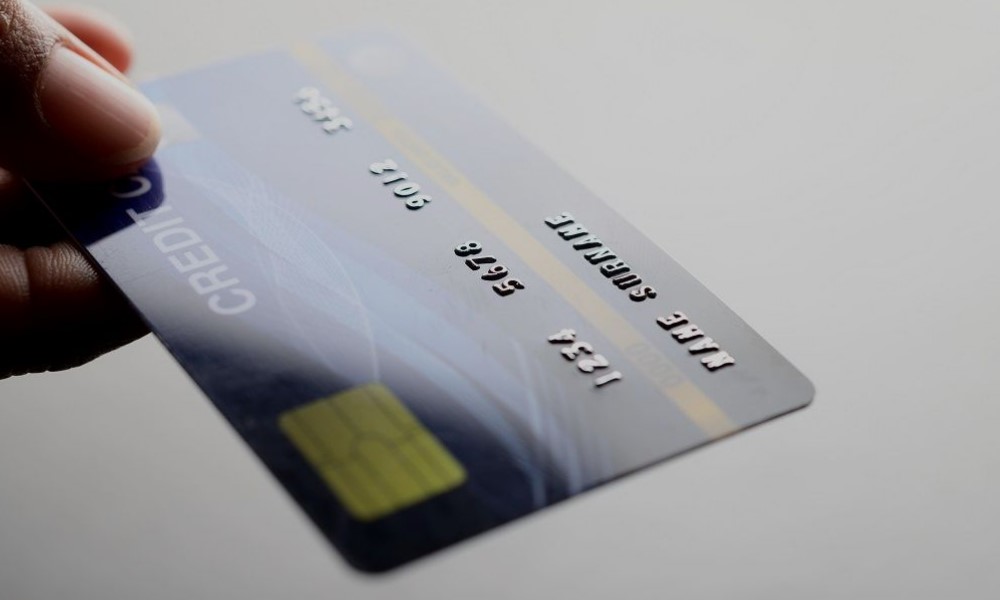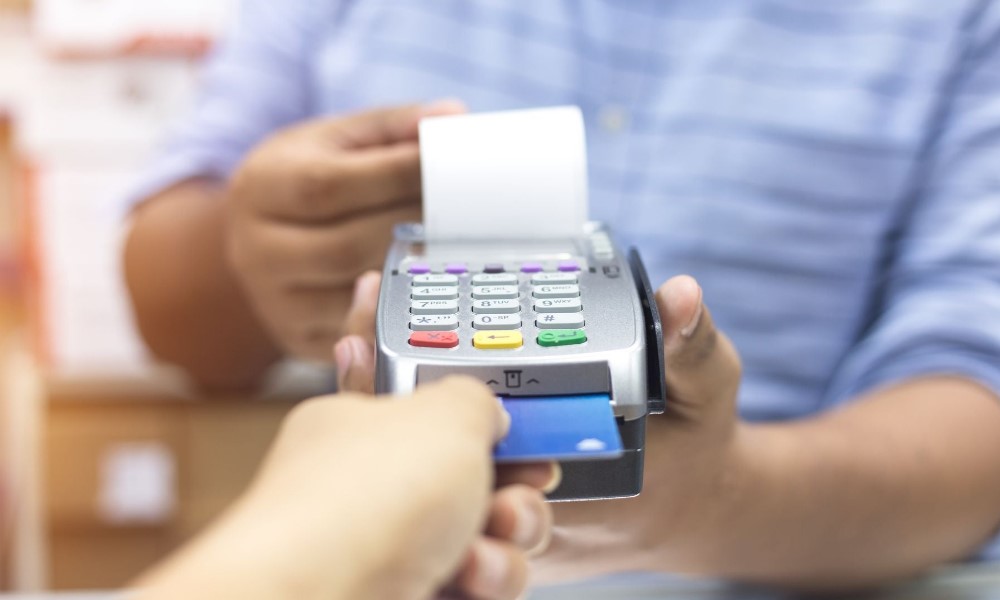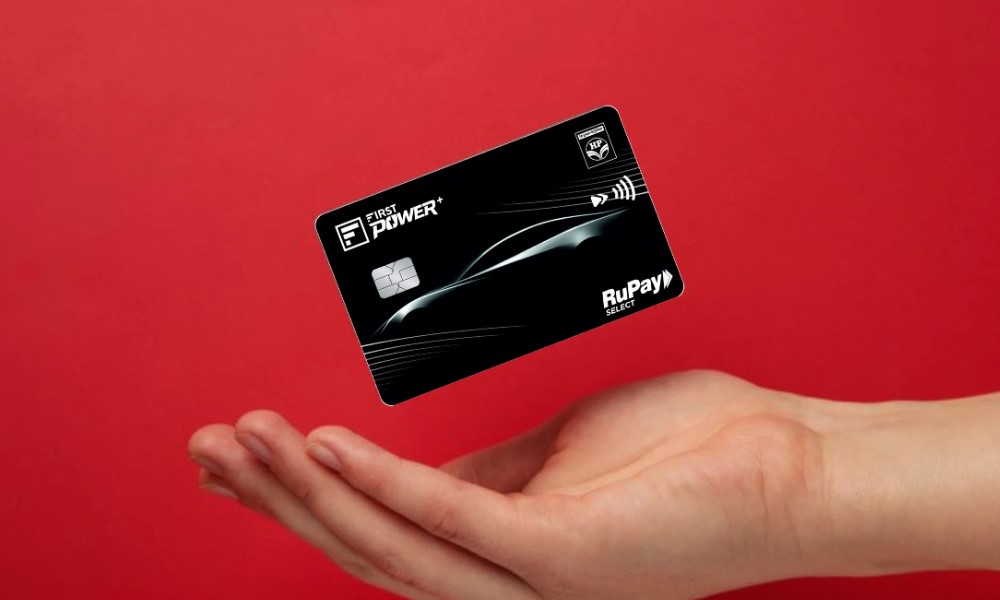The Best Credit Cards for Entrepreneurs in 2024
Entrepreneurs often face a unique set of financial challenges, ranging from managing cash flow and securing capital to optimizing expenses for long-term growth. One of the most critical financial tools that can help with these challenges is a credit card specifically designed for business needs. In this article, we’ll walk through some of the best credit cards for entrepreneurs in 2024, outlining their features, benefits, and how they can significantly impact your business. This guide will also delve into the specific use cases for each card, compare their advantages and disadvantages, and show you where and how to apply for these cards.
Why Entrepreneurs Need Business Credit Cards

As an entrepreneur, it’s essential to separate personal and business finances. This practice not only simplifies your accounting but also protects your personal assets in case of business-related liabilities. A dedicated business credit card offers several advantages, including:
- Expense Management Tools: Business credit cards often come with expense tracking software that helps categorize and manage spending. These tools are invaluable for filing taxes and ensuring you stay within budget.
- Reward Programs: Many business credit cards offer rewards in the form of cashback, travel points, or discounts on business services like shipping, advertising, and office supplies. These rewards can translate into significant savings over time.
- Access to Business Loans and Credit: Building a strong business credit score opens doors to other forms of financing, such as business loans or lines of credit, which are crucial for scaling your enterprise.
- Employee Cards: Business credit cards allow you to issue additional cards to employees, giving them access to company funds while maintaining control over spending limits.
- Cash Flow Flexibility: Business credit cards offer flexibility in managing short-term expenses. You can make necessary purchases for your business and pay them off over time, which can help with cash flow management during lean months.
In this comprehensive guide, we’ll explore the best credit cards for entrepreneurs in 2024, breaking down their features, benefits, use cases, and more.
Types of Entrepreneurial Credit Cards

Entrepreneurial credit cards come in various types, each designed to cater to the specific needs of business owners. The right card can provide essential tools for managing expenses, earning rewards, and building business credit. Here are the main types of entrepreneurial credit cards available:
- Cashback Credit Cards: These cards offer cashback on everyday business purchases. Entrepreneurs can earn a percentage of their spending back, typically ranging from 1% to 5%. Some cards offer a flat rate on all purchases, while others give higher cashback in specific categories such as office supplies, advertising, or dining. For businesses with diverse expenses, cashback credit cards offer a simple way to save on operating costs.
- Rewards Credit Cards: Rewards cards allow entrepreneurs to earn points or miles for every dollar spent. These points can be redeemed for travel, gift cards, or other perks. For businesses that require frequent travel or wish to reinvest rewards into business operations, these cards are ideal. Some rewards cards also offer bonus points in specific spending categories, like travel or technology.
- Travel Credit Cards: Tailored for entrepreneurs who frequently travel for business, travel credit cards provide miles or points that can be redeemed for airfare, hotel stays, or travel-related expenses. These cards often come with additional perks, such as airport lounge access, travel insurance, and no foreign transaction fees, making them ideal for frequent flyers.
- Low APR or 0% Intro APR Cards: These cards are perfect for entrepreneurs who need to make large purchases or finance equipment without paying immediate interest. They offer a 0% introductory APR for a set period, helping businesses manage cash flow without accruing debt.
- Business-Specific Cards: Some credit cards are designed specifically for startups and small businesses, offering tailored rewards, no personal guarantees, and tools for managing expenses and accounting.
Choosing the right entrepreneurial credit card depends on your business’s spending habits, growth goals, and preferred benefits.
Features to Look for in Entrepreneurial Credit Cards

Before diving into the top credit card options, it’s important to understand the key features entrepreneurs should consider when choosing a credit card. Selecting the right card depends largely on your business’s unique needs and spending patterns.
1. Rewards Programs
One of the most attractive features of business credit cards is their reward systems. These can come in the form of cashback, travel miles, or points that can be redeemed for various business expenses. The right rewards program can help you save significantly on major business categories such as advertising, office supplies, and travel.
For example, if your business frequently invests in digital advertising, a credit card that offers extra points or cashback in this category can provide substantial value. Similarly, if you travel often for business purposes, a card offering travel rewards will be beneficial.
2. Introductory APR Offers
Introductory APR offers, often at 0%, can provide a buffer for entrepreneurs who need to finance large purchases upfront. For instance, if your business is expanding and you need to invest in new equipment or technology, a card with an introductory 0% APR period will allow you to make those purchases without worrying about interest accrual for several months. This can be especially helpful for startups that may need to make significant upfront investments without immediately available revenue.
3. Credit Limit and Spending Flexibility
As your business grows, your need for higher credit limits will likely increase. Many business credit cards offer higher limits than personal cards, giving you the flexibility to cover larger purchases, whether it’s buying inventory or upgrading office technology. Some cards, such as the American Express Business Platinum, offer no preset spending limits, giving you even greater flexibility.
4. No Foreign Transaction Fees
If your business operates internationally or you frequently travel overseas, you’ll want to ensure your card doesn’t charge foreign transaction fees. These fees can add up quickly, especially if you make regular purchases abroad.
5. Employee Card Benefits
Many business credit cards allow you to issue additional employee cards at no extra cost. This is a convenient way to empower your team to make necessary purchases for the company, all while keeping track of individual spending. Some cards even let you set specific spending limits for each employee card, ensuring tighter control over expenses.
Top 5 Credit Cards for Entrepreneurs in 2024

We’ve researched and selected five top credit cards for entrepreneurs in 2024. Each card offers a unique set of features tailored to different types of business needs. Below, we’ll break down the benefits, pros and cons, and specific use cases for each card, helping you find the one that best suits your business.
American Express Business Gold Card
Overview: The American Express Business Gold Card is a powerful tool for entrepreneurs who want to maximize rewards on business-related purchases. It offers flexible point-earning categories, meaning you earn 4X Membership Rewards points on your top two spending categories each month (up to $150,000 per year). These categories can include advertising, airfare, and technology purchases, making it an excellent choice for tech startups or businesses heavily invested in digital marketing.
Features:
- 4X points on two selected categories each billing cycle (airfare, advertising, technology)
- No foreign transaction fees
- Access to Amex Offers, which provides additional discounts at select merchants
Benefits:
- Flexible Rewards: Entrepreneurs can earn rewards where they spend the most, giving you more control over maximizing benefits.
- Expense Management Tools: The card includes access to tools that help you track and manage business expenses.
Pros:
- High rewards rate on key business categories
- Customizable spending categories for more tailored rewards
- No preset spending limit
Cons:
- High annual fee ($295)
- Rewards are capped after $150,000 in annual spending
Use Case: This card is ideal for businesses that frequently spend on advertising and technology. If you’re running a digital marketing campaign or need to upgrade your office’s tech infrastructure, this card’s rewards will help you get more value from your purchases.
Where to Apply: Apply for American Express Business Gold Card
Chase Ink Business Preferred Credit Card
Overview: The Chase Ink Business Preferred Credit Card offers outstanding value for entrepreneurs with heavy expenses in advertising, shipping, travel, and internet services. This card provides 3X points on the first $150,000 spent annually on these business categories, which makes it perfect for growing businesses with diverse operational costs.
Features:
- 3X points on shipping, advertising, travel, and internet services
- No foreign transaction fees
- 100,000-point sign-up bonus after spending $15,000 in the first 3 months
Benefits:
- Generous Rewards: Earn 3X points on categories crucial to business operations, allowing entrepreneurs to save significantly.
- Flexible Point Redemption: Points can be redeemed for travel at a higher value through Chase Ultimate Rewards.
Pros:
- High rewards rate on essential business categories
- Excellent sign-up bonus
- No foreign transaction fees
Cons:
- Requires a high spending threshold for maximum rewards
- $95 annual fee
Use Case: Entrepreneurs with diverse spending needs, particularly in shipping and advertising, will find the Chase Ink Business Preferred invaluable. If your business relies heavily on digital marketing or international shipping, the 3X rewards structure will offer significant savings.
Where to Apply: Apply for Chase Ink Business Preferred
Capital One Spark Cash Plus
Overview: Capital One’s Spark Cash Plus card is perfect for entrepreneurs who prefer straightforward cashback rewards without worrying about rotating categories or caps. This card offers an unlimited 2% cashback on all purchases, which can add up quickly for businesses with broad spending patterns.
Features:
- 2% cashback on every purchase, no categories or limits
- No annual fee for employee cards
- No preset spending limit, which adjusts based on your business’s financial profile
Benefits:
- Simple Cashback System: With 2% cashback on every purchase, this card is ideal for entrepreneurs who want straightforward rewards without managing multiple categories.
- No Preset Spending Limit: This feature is perfect for businesses that need flexibility as they grow, allowing higher spending as your business expands.
Pros:
- Unlimited 2% cashback on all purchases
- No foreign transaction fees
- No preset spending limit
Cons:
- High annual fee ($150)
- No bonus categories for higher cashback
Use Case: This card is excellent for businesses with varied spending categories that want to earn a flat cashback rate across the board. Whether you’re buying office supplies, travel tickets, or paying for online advertising, this card will give you consistent rewards without restrictions.
Where to Apply: Apply for Capital One Spark Cash Plus
Brex Card for Startups
Overview: The Brex Card for Startups is designed specifically for high-growth startups and tech companies. It offers an impressive rewards system that tailors itself to the unique spending habits of startups, including categories like rideshare, recurring software subscriptions, and travel.
Features:
- 7X points on rideshare, 4X on travel, 3X on restaurants, and 2X on software services
- No personal guarantee required
- No annual fee
Benefits:
- Tailored Rewards for Startups: Brex’s rewards are designed around typical startup expenses, making it a great fit for early-stage companies.
- No Personal Guarantee: Unlike most credit cards, the Brex card doesn’t require a personal guarantee, making it a safer option for entrepreneurs.
Pros:
- No annual fee or foreign transaction fees
- Excellent rewards for tech-related expenses
- No personal guarantee required
Cons:
- Rewards categories are limited to tech and startup-related expenses
- Points must be redeemed through Brex
Use Case: This card is perfect for startups that want to avoid personal liability while earning rewards tailored to their unique spending patterns. If your company spends heavily on software subscriptions or travel, Brex’s rewards system will provide exceptional value.
Where to Apply: Apply for Brex Card for Startups
Bank of America Business Advantage Customized Cash Rewards
Overview: This card allows entrepreneurs to choose one category where they want to earn 3% cashback, such as office supplies, travel, or computer services. This flexibility makes it a great option for businesses with specific high-cost categories.
Features:
- 3% cashback in a category of your choice
- 2% cashback on dining, 1% on all other purchases
- 0% introductory APR for the first 9 billing cycles
Benefits:
- Customizable Rewards: You can choose the category that best fits your business, ensuring you maximize your rewards.
- Flexible Cashback Options: This card provides flexibility with how you earn and redeem your cashback.
Pros:
- No annual fee
- Customizable rewards categories
- 0% introductory APR
Cons:
- Capped rewards on higher cashback categories
- Lower cashback rates compared to other business cards
Use Case: This card is ideal for businesses with specific, high-cost categories such as office supplies or telecommunications services. Entrepreneurs can maximize their savings by focusing on the spending category that most aligns with their business needs.
Where to Apply: Apply for Bank of America Business Advantage Customized Cash Rewards
How to Choose the Right Credit Card for Your Business

Choosing the right credit card for your business depends on understanding your spending patterns, cash flow needs, and long-term goals. For example, if you’re looking for high rewards in advertising or travel, cards like the American Express Business Gold or Chase Ink Business Preferred will provide significant value. If simplicity and consistent cashback are more important, the Capital One Spark Cash Plus offers straightforward, unlimited rewards.
Consider the following factors when selecting a card:
- Annual Fee: Some cards come with high annual fees but offer premium benefits. Ensure the rewards and perks outweigh the cost of the fee.
- Spending Categories: Look for cards that offer rewards in the categories where you spend the most, whether it’s office supplies, advertising, or travel.
- Introductory APR: If you’re planning to make large purchases soon, a 0% introductory APR card can save you money in interest.
- Foreign Transaction Fees: If you do business internationally, avoid cards with foreign transaction fees to prevent extra costs on overseas purchases.
- Expense Management Tools: Many business credit cards come with software to help track and manage your spending, making it easier to budget and file taxes.
Frequently Asked Questions (FAQ)
1. What’s the difference between a business credit card and a personal credit card?
Business credit cards are designed to cater to business-related expenses and often come with rewards or perks specific to business spending categories, such as office supplies, advertising, and travel. They also help keep personal and business expenses separate, which is crucial for financial management and tax purposes.
2. Can I get a business credit card if my business is new?
Yes, many business credit cards are available to new businesses. However, some cards may require a personal guarantee or check your personal credit score if your business doesn’t have an established credit history yet.
3. How can I improve my chances of getting approved for a business credit card?
To increase your chances of approval, make sure your personal credit score is in good standing, and ensure your business financials are well-documented. Additionally, some cards are more lenient with startups, such as the Brex Card, which doesn’t require a personal credit check.






